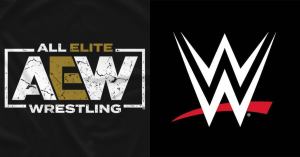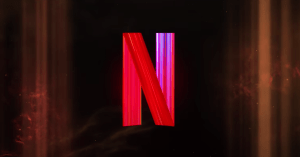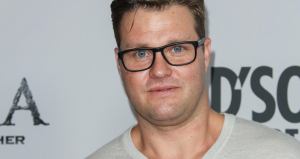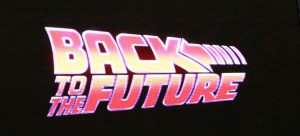When Paramount+ announced they’d be picking up The Game for another go around, longtime fans of the sports dramedy series were ecstatic. Now television sitcom has had such staying power in the history of television. The streaming platform marks the third network the show has been on since it debuted in 2006, premiering on The CW, transitioning to BET, and now in the Paramount family. Wendy Raquel Robinson, Hosea Chanchez, and Coby Bell are the original players from the first show. The Paramount+ series saw additions of Adriyan Rae, Vaughn Hebron, Analisa Velez and Toby Sandeman. The new version offers a modern-day examination of Black culture through the prism of professional football. The beloved characters tackle racism, sexism, classism, and more as they fight for fame, fortune, respect and love – all while trying to maintain their souls as they each play the game. Season 2 doubles the laughs and heightens the drama as they fight to survive the storms of change.
Ahead of the Season 2 finale, Popculture.com spoke with Chanchez about his journey on the show. This season marked his directorial debut, as well as his being listed as a producer on the show. He also opens up a bit about his personal life, and specifically how he uses his platform to advocate for the causes he’s most passionate about.
Videos by PopCulture.com
PC: This is the third iteration of The Game. We went from The CW, to BET, to now, Paramount+, and you’re in your second iteration of The Game 3.0. They say men mature slower than women. And I feel like if you add to that fame, then there’s even more stagnation, so what would you attribute Malik’s stagnation?
HC: You know what? I really think that our cast is such a big cast for such a long time. Although it’s still a big cast, I think this is probably a smaller version when it comes to all the storylines that needed to be fulfilled. We are more intertwined now than I think, in a way, kind of we have been in the past. So, I feel like now, especially with the third time doing this character, I think everybody decided, “Okay, we got to see some growth out of this young man,” because that’s really just naturally how men and people and humans are in general. So, I think it was a collective effort that we all came into this version of the show and knew that there would have to be a really good amount of growth for Malik in particular because he was probably one of the most underserved characters before with the other iterations of the show. I think that’s about as honest as I can be. You know what I mean?
PC: No, I agree, and I think that it’s been good for this iteration to see him really come into his own and not be the spoiled mama’s boy that we’ve known him to be. Do you feel as though now he’s stepped up as a leader of his team, and at this point, do you feel as if his teammates are starting to respect him?
HC: Yeah. You know what? I believe Malik has been a leader the entire time. That’s one of the qualities that I really loved about him, and one of the things that I personally gravitated to. If you think back from even the CW days with Coby Bell and Pooch Hall and the camaraderie that those guys had, Malik had always had this leadership quality to him that I personally was able to connect to because I have that same synergy with a lot of my relationships in my personal life. So, I do think that that’s the one characteristic that he’s been really kind of consistent in. Even though he was young and there’s a lot of shenanigans that existed within this man, if you really look at it, he’s always been the one to lead the charge, not just for the team, but his friendships and his relationships also. So, yeah, I think he’s a natural-born leader, which makes him a great athlete and a great captain.
PC: Yes, absolutely. I touched a little bit on him being a mama’s boy, and obviously, his relationship with Tasha Mack has always been a fan favorite. It’s one that a lot of people of color, Black men and women can relate to who watch the show, but I feel as if Malik has struggled in the love department. So, how do you feel as though his relationship with his mother has impacted his relationships with women or lack thereof?
HC: Wow. It’s interesting that you asked that question because listen, I relate to Malik and Tasha’s relationship personally myself. It’s similar to the one that my mom and I have. When you have a single mother who raises you at a really young age or has you at a really young age, the village is more necessary than any other time. On top of that, you build this relationship. I know this firsthand. If you build a relationship with your parent, it’s almost as if they’re your sibling in a way because you’re both really young and you’re experiencing a lot of firsts together. So, I feel that that relationship between Tasha and Malik and their growing pains have really influenced the way Malik handles relationships.
A lot of times with Black men in our community… I can’t speak for other communities, but in our community, particularly when there’s a single mom involved, the son can become the husband. We know this story, right, Brenda? So, there has to be some boundaries set in place and on both parts, and I think that’s one of the things that Tasha and Malik have had the biggest challenge with is knowing where their boundaries are in their relationship. Because of that relationship, I think it’s been a lot more difficult for Malik to actually find something solid and consistent because his mom has been his partner his entire life. So, something would have to drastically change in Tasha and Malik’s life in order for there to make room for Malik to have a real relationship. I think that’s what we’ve been experiencing for the past two seasons on the show this time.
PC: Well, it’s definitely been interesting to watch. Another thing that I like about this iteration of The Game versus the previous two is that we’re seeing a lot of different subject matters tackled on and off the field. Obviously, the idea of racism and ownership. How timely are these matters in the world of football, but also for people of color?
HC: Well, it’s extremely timely, and I believe that the reason why in the past we hadn’t been able to dive in just as deep of a diver as we can here on Paramount+ is because we’re in this new world of streaming now. So, the rules are different. It’s not network television that we grew up on or that we started on. As you know, there’s so many different rules that come along with network television that doesn’t allow you to really dive into and tackle issues head-on, and more realistically. A lot of times, if you do handle those issues on network television, you’re probably going to have some comedy to it. It’ll be a little more lighthearted than normal, but here, thankfully through Paramount+, we’re able to really tell these stories without boundaries, without restriction of any kind. So, I think that’s the main difference between then and now.
The timeliness of it is the reason on the show exists now in this iteration. There was no reason to bring the show back again, but there’s still so many more stories to tell in this world. Again, particularly stories that we can just be really real and raw with and not having to sugarcoat it in any type of way. So, now that we are here, we get to tell a whole new set of stories in the NFL. Think about all the things that have happened in football since the show was on. I think it was six years ago in BET the last time that it was on. So much has happened.
Athletes and football players, in particular, have become the cornerstone for a lot of society. They’ve been the pillars of our society and leading the change and the charge, the social change that we see, the racial change that we see. I mean, these guys are still on the front line, well, fighting for, in a sense, fighting for some issues that we have in our community that need to be rectified in some ways. So, I do believe that the show now gives breath and life to the life-changing issues that we’ve experienced in the past five years.
PC: Well, hopefully, we continue to see more in future seasons to come. Now, let’s talk about Hosea off-camera. Now, you’re a producer now, so congratulations to you on that. Also, you made your directorial debut this season. So, how has that transition been, especially because you have been with the show since 2006, I think.
HC: Yeah. I got the job in ’05, and I think we aired in ’06. So, it has been probably the most natural transition, believe it or not. I have done every single… I think probably, me and Wendy [Raquel Robinson] are the only actors that have done every single episode since – from the inception of the series. I went into this with so much humility as a director, knowing that I knew this world very well, and not only did I know it very well, but I felt like I had something to offer to the world. I had some life experience to offer to the world, but I also had the experience of, like I said, from the very first frame of the show, I’ve been here.
So, I thought that with this iteration, I could hopefully lead this new generation of viewers and our faithful fans that have followed us from network to network, lead us to a place where we could actually enjoy and see something new and breathe some life into it. I didn’t just want to do it just to direct, just because I could. I felt like I needed to have a place and a purpose in that, so that’s how I went into it this time around, fully prepared and feeling like I was exactly where I needed to be, if that makes sense.
Yeah. So, it felt so natural, Brenda. It was just a natural thing for me. It was a natural next step for me to do here, and I felt like almost in a way, it was my duty too.
PC: Yeah. I thought when I learned that about you, I actually learned that right before this call. But it was interesting because I had just listened to an interview a few weeks ago with the 30th anniversary of A Different World where the cast spoke about how Debbie Allen put in their contracts-
HC: 30?
PC: I think it’s 30th.
HC: It’s been 30 years.
PC: Well, yeah because I’m 31, and it came out in ’89 or something. So, I think 30 or 35th, one of those. But they spoke about how Debbie Allen put in their contracts for each of the main cast members, that they would have to write or direct one or two episodes each season. So, I just that thought that was really great to see how far we’ve come since that time.
HC: Well, did they all do it?
PC: They did.
HC: Wow. I love that. I love that.
PC: Yeah, it was on the-
HC: It’s a testament to the woman that she is.
PC: Yeah. It was on The Breakfast Club, so I’ll send it to you-
HC: Because everybody didn’t do that.
PC: Oh, they got them going.
HC: Most people don’t do that, and oftentimes, we’re really scraping and fighting for something that should, in a sense, be natural for an artist, especially artists that have been around this long on a series. So, that’s fantastic to hear.
PC: Now, you’ve also been vocal about mental health, which I appreciate. Obviously, it’s a huge topic. Where does your passion stem from in order for you to be this mental health advocate?
HC: If I’m honest, my passion actually, and this is one of the beautiful things about the show this time around, was that I got an opportunity to learn something from my character, and I got an opportunity to really learn something from the world that we built. Had it not been for Devon Gregory writing Malik going through these things, I wouldn’t have been able to identify with him myself. And as a matter of fact, not only identify, I would not have been able to assess my own mental health issues had it not been for me having to go through a lot of research, mounds of research to understand what the hell Malik was going through.
Because when we first talked about it, we talked about it from the outside. The script hadn’t been written. He expressed to me exactly what he wanted to do and how he wanted to do it. So, I was like, “Okay, great. This gives me some work as an actor to actually dive in.” Now, I don’t necessarily relate to this firsthand, however, I want to do more research on it. After I did more research on it, I realized, “No, I too, and most of us society, and particularly a couple of years ago, going through COVID and going through all the racial issues that we experienced in our country, and personal issues myself that I don’t often speak about, but personal issues in my own personal life, and then. The maturity of growing and becoming a man. A Black man in this industry, and hearing a lot of no’s and not really understanding where my place is as all artists get to a space and a place and time where you have to reassess what you’re doing and why you’re doing it.
I grew up with Malik. I started that character. I was 20 in my early twenties, and now I’m in my early 40s now, and I’ve experienced a great deal of my life through this character and not just through the character, but in general. I’ve experienced a lot of growth. As you know, men, we grow as we’ve said much, later than women, so I got a lot of lessons late in my life. I spent a lot of my 20s on set and my 30s, all of my 30s on a set. So, I didn’t really get an opportunity to fully live life. I was naive about so many different things.
So, I was able to go back and assess a lot of the traumas that I’ve experienced and identify with the pains and suffering that Malik was going through. Well, that opened up a Pandora’s box for me in a rabbit hole of me understanding that I have been too suffering from mental health issues. So, that allowed me to seek the help that I needed and the healing that I needed for myself. So, I learned a lot through Malik the last two years, which I’m so grateful for this opportunity because that’s how I got engaged, and that’s how I got into this charge, my new charge for mental health.
PC: Well, that’s beautiful. One of the things I was proud of you for was that you also took a stance in defense of Megan Thee Stallion recently. Now, a lot of us who have been watching have obviously been flabbergasted by the way in which she has been vilified. Why did you decide to speak out, and did you receive any support and/or backlash in you doing so?
HC: I received a lot of support because I was actually shocked. Listen, my little Instagram, I haven’t nurtured it the way I should, and my publicist, Roya, in general just talks about how I need to cultivate these things more. I don’t often think somebody’s looking at it. I’m like, “Nobody’s paying attention to my Instagram but my followers, so let me say this to these people.” I was very shocked that it actually took the wings that it took, and I was actually proud that it took the wings that it took. Also, well proud and sad because it showed – also the lack of support that she had before or in the middle of that space. Had I known that there wasn’t the support that I thought there was, then I probably would’ve said it earlier. So, now to get to your question… Well, no. I think I answered your question. Didn’t I?
PC: Yeah, you said you received more support than you had backlash?
HC: Yeah. I received more support than backlash, and I was really proud that I could see a lot of people. A lot of people did not support her. I think a lot of people just didn’t speak up because I think much often, we just assume that people have the support, but we just assume that they don’t necessarily need it. I didn’t know that there were so many people that didn’t believe her and that she had to fight against honestly, until… I thought it was…again, like I said, I was in my own little world with my socials, and I saw what was being said within the world that I live in. And then, to expand that and see that, “Wow, there was a large majority of our people that did not believe this woman with all the proof in the world.” And then, that made me really sad because I’m like, “Wow, if she’s going through this, I can only imagine what the average woman in general.” It didn’t matter what color she is. Now, as we get into black and brown women, those odds and those numbers are worse, but either way, the fact that you have to go through this type of incident and still not be believed in today’s society with technology and with the best attorneys and everything, that she would have to still prove herself to so many people.
PC: Before I let you go, you touched on this a little bit in an earlier answer where you said you don’t really share a lot publicly, which I mean, a lot of us respect because sometimes it’s just overkill with some celebrities, with social media, and everything like that. But from my last interview, a lot of my followers or people who watched the interview, they wanted to know how your love life was.
HC: It’s great.
PC: Great.
HC: I’m not talking about it, but it’s great. Yeah. Yeah, it’s amazing. It’s fantastic. It’s wonderful. It’s another thing that God has surprised me with that I’m just so wonderfully happy about and just blessed, so it’s fantastic. I ain’t talking about it though. I mean, I will, you know what I’m saying? When the time is right, I’m not trying to act like I’m… It’s not some big ole secret and all that, but it’s just timing.
PC: Well, great. Congratulations.
HC: Well, no more.
PC: Well, hopefully, when we do our next interview, you’ll be ready to spill some more tea, but-
HC: Let’s go, Brenda. Let’s go.








